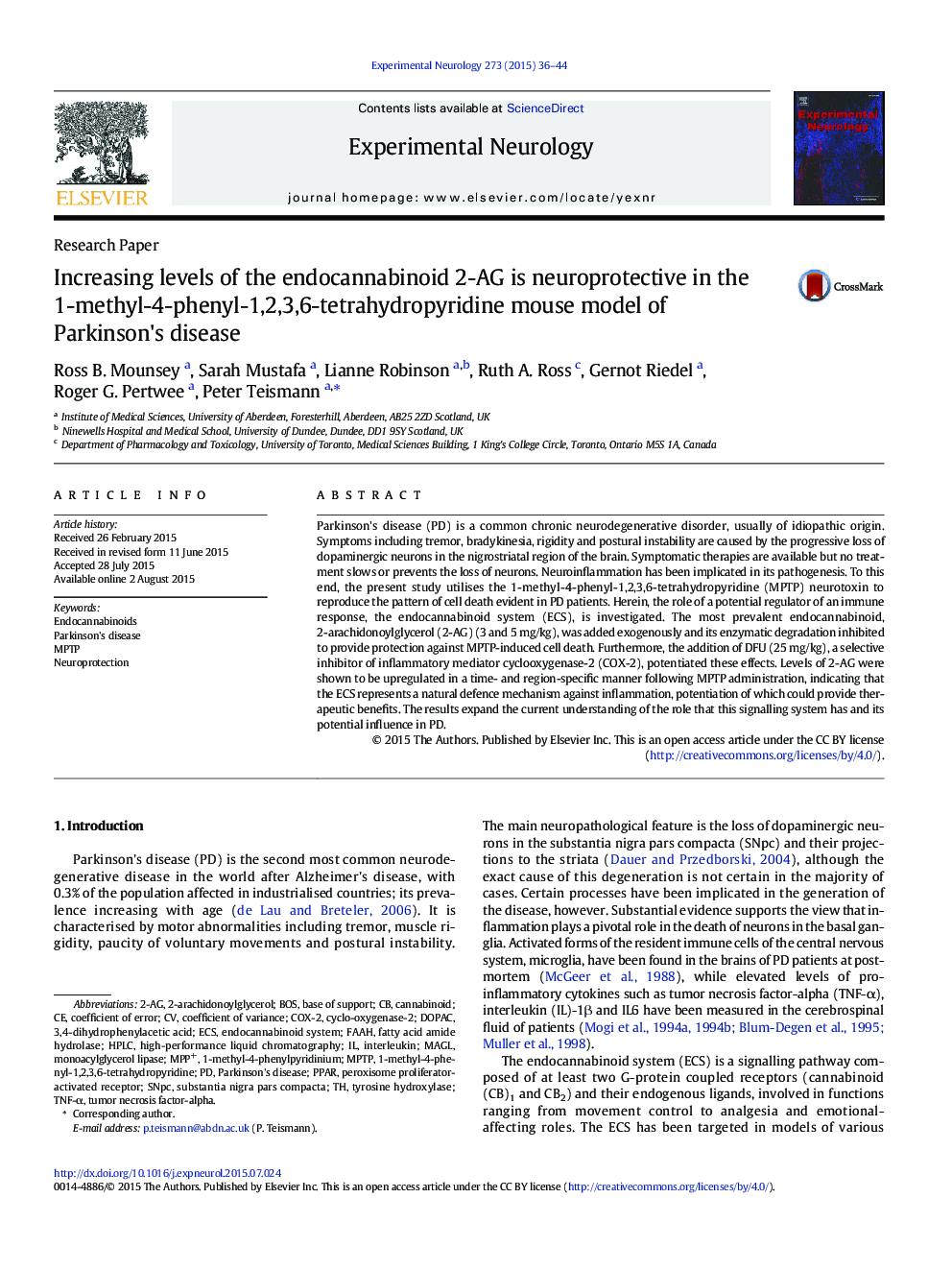| کد مقاله | کد نشریه | سال انتشار | مقاله انگلیسی | نسخه تمام متن |
|---|---|---|---|---|
| 6017343 | 1580160 | 2015 | 9 صفحه PDF | دانلود رایگان |

- We investigate the role of 2-AG in a model of Parkinson's disease.
- 2-AG and inhibition of its metabolism by JZL184 protected against MPTP toxicity.
- A combination of JZL184 with a COX-2 inhibitor increased the effect.
- Manipulation of endocannabinoid levels might be useful for Parkinson's disease.
Parkinson's disease (PD) is a common chronic neurodegenerative disorder, usually of idiopathic origin. Symptoms including tremor, bradykinesia, rigidity and postural instability are caused by the progressive loss of dopaminergic neurons in the nigrostriatal region of the brain. Symptomatic therapies are available but no treatment slows or prevents the loss of neurons. Neuroinflammation has been implicated in its pathogenesis. To this end, the present study utilises the 1-methyl-4-phenyl-1,2,3,6-tetrahydropyridine (MPTP) neurotoxin to reproduce the pattern of cell death evident in PD patients. Herein, the role of a potential regulator of an immune response, the endocannabinoid system (ECS), is investigated. The most prevalent endocannabinoid, 2-arachidonoylglycerol (2-AG) (3 and 5Â mg/kg), was added exogenously and its enzymatic degradation inhibited to provide protection against MPTP-induced cell death. Furthermore, the addition of DFU (25Â mg/kg), a selective inhibitor of inflammatory mediator cyclooxygenase-2 (COX-2), potentiated these effects. Levels of 2-AG were shown to be upregulated in a time- and region-specific manner following MPTP administration, indicating that the ECS represents a natural defence mechanism against inflammation, potentiation of which could provide therapeutic benefits. The results expand the current understanding of the role that this signalling system has and its potential influence in PD.
Journal: Experimental Neurology - Volume 273, November 2015, Pages 36-44